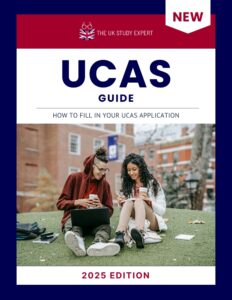(Updated March 2024)
Similar to my recent post regarding UCAS Application vs. UK Direct Applications, there is another process if you are interested in applying both to US and UK universities.
Students have the option to apply to UK universities via the Common App, but what is their best strategy based on their student’s needs? Below, we outline the distinctions between Common App and UCAS, helping you strategize effectively to give you the best results.
Before we get into the specifics, let’s explain the differences between these two applications:
-
UCAS is the centralized application system for all UK universities.
-
Common App is the centralized application system for US universities.
Comparing the differences, Common App allows you to apply up to 20 universities, however, you do need to be mindful of the costs per university submission. UCAS allows up to 5 UK universities and has a flat fee (£27.50).
Many UK universities have hopped on the bandwagon and added their institution to Common App. Why? To attract more US students by making the process simpler. Even though the Common App allows students to track all of their applications on one system, only 6% of UK universities are available on the platform. There are currently 19 UK universities listed on Common App.
UCAS dominates the UK university application system. If a student applied through both UCAS and Common App, it’s most likely because a student didn’t review all of their options before applying. They may have seen a UK university listed on Common App, added them, but then realized they found another UK university they want to apply to that’s not on Common App.
? Need help with your UCAS application? Get our UCAS Guide for $39
What if you have applied to UK universities both through UCAS and Common App?
There’s no policies or restrictions when applying to both; however, the biggest issue here is when you accept an offer.
Ashley Warmington, Senior International Officer from University of Glasgow explains, “Behind the scenes, every Common App turns into a UCAS application during processing. If a student applies and accepts their offer on the Common App, the admissions team will transfer their information to UCAS. If they find that their UCAS is already full with universities, it becomes an issue.”
If you accept two offers (one from Common App and the other UCAS), UCAS can notify both universities and reject your decision. This is similar to the recent blog post I have posted regarding direct UK university applications vs. UCAS here.
If you accept a university through Common App and you have used all 5 university options on UCAS, you could risk losing all of their offers on UCAS for their Common App choice.
Advice:
Below are some suggestions to weigh your options:
-
If you plan on applying to one or two universities in the UK that are listed on Common App and are also applying to US universities, then it’s best to utilize one platform and apply through Common App.
-
If you know that studying in the UK is your main focus, the UCAS application is the most preferred to use. It helps to separate your UK and US Applications. Since the Common App is a US application, UK universities find that students who apply directly through Common App are typically not prioritizing the UK, especially since there is no restriction on the amount of submissions. It’s easy to add another university application, such as a reach school, just to see if they can get accepted. Applying through UCAS/direct applications may help reduce application fees and response time. Plus, they will not request supplementary essays or information that the Common App usually requires.
-
If you apply through both UCAS and Common App systems, we recommend accepting one offer between the two. Disclaimer: If you accept an offer through Common App and you have used all university slots on UCAS, you may risk losing all of your offers on UCAS.
Common App UK Universities
Arts University Bournemouth, UK
University of the West of England, Bristol
UK University Entry Requirements
If you are trying to find UK University’s US undergraduate entry requirements, look no further! You can use our Undergraduate Universities search tool to filter which university matches your academic profile. If you click on each university profile, it lists their US entry requirements.











One Response
I liked your work.